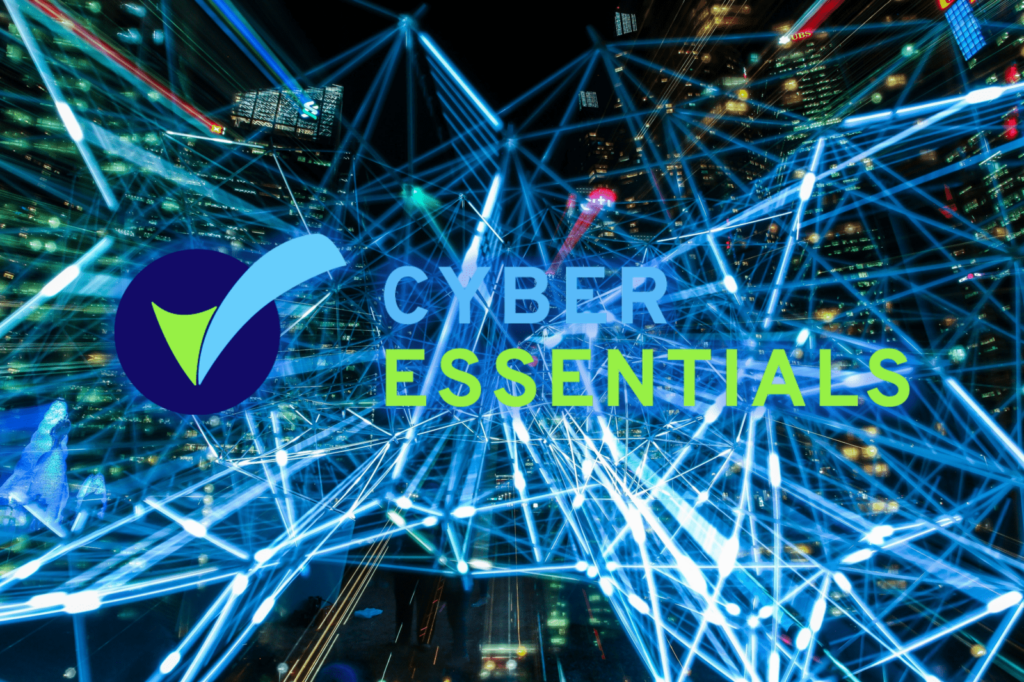
As cyber threats continue to grow in scale and complexity, robust cyber security in education has never been more critical. In recognition of this, the Department for Education (DfE) is introducing important updates for the 2024 to 2025 funding year.
All colleges and special post-16 institutions (SPIs) will now be required to achieve Cyber Essentials certification within this timeframe. This change also means the previous obligation to complete an annual IT health check will be removed. To support this transition, IASME, delivery partner for the National Cyber Security Centre’s (NCSC) Cyber Essentials scheme, has released guidance tailored for schools, which is also applicable to colleges. You can read the full announcement from the government here.
In this blog, we’ll explore the benefits of the Cyber Essentials scheme explicitly for the education sector, why it’s a vital step toward safeguarding sensitive data and systems, and how Qlic can support your institution every step of the way to certification.
What is Cyber Essentials for Education?
Cyber Essentials is a UK government-backed certification scheme developed and managed by the National Cyber Security Centre (NCSC). Designed to help organisations of all sizes protect against the most common and preventable cyber threats, the scheme has become a critical baseline for cyber resilience, particularly in the education sector, where sensitive data and daily digital operations are at continuous risk.
At its core, Cyber Essentials outlines a set of five essential technical controls that are simple to implement but powerful in impact. These security controls form the foundation of good cyber hygiene and include:
- Boundary Firewalls and Internet Gateways – Protecting the network from unauthorised access and malicious content.
- Secure Configuration – Ensuring devices and software are set up with the most secure settings from the outset.
- Access Control – Managing user accounts and permissions to ensure only those who need access can get it.
- Malware Protection – Implementing anti-malware solutions to detect and block harmful software.
- Patch Management – Keeping systems up to date with the latest security updates to close known vulnerabilities.
These measures are applied to everyday devices like laptops, desktops, and mobile devices, making the scheme very relevant to the technology setups commonly used in schools and colleges.
Having run for nearly 11 years, Cyber Essentials is a well-established and trusted scheme with a track record of success. Over 200,000 certifications have been issued since its inception, with a remarkable 48,000 in the past year alone, highlighting growing awareness and adoption. For education providers, this demonstrates not only a recognised standard but also a shared movement toward better digital protection.
Cyber Essentials should be viewed as the footing, or first rung on the ladder, of an organisation’s cyber security strategy. It’s also a team effort: when schools, colleges, and educational institutions across the UK implement these basic controls, they collectively contribute to a more secure digital environment for the entire sector.
Understanding Cybersecurity Threats in the Education Sector
At first glance, schools, colleges, and universities may not seem like major targets for cyber criminals. However, the reality is quite the contrary. The education sector has seen a sharp rise in cyber-attacks in recent years, a trend highlighted by the latest Cyber Security Breaches Survey 2024. This annual study, commissioned by the UK government, supports the country’s National Cyber Strategy and provides necessary insights into cyber resilience across various sectors.
The 2024 report specifically looks at:
- Primary schools
- Secondary schools
- Further education colleges
- Higher education institutions
The findings reveal a disturbing increase in cyber incidents across all types of education providers:
- 52% of primary schools reported experiencing at least one breach or attack in the past year.
- 71% of secondary schools identified breaches or attacks.
- A staggering 86% of further education colleges faced cyber threats.
These numbers underscore the pressing need for stronger cyber security in education. As institutions continue to adopt cloud technologies, digital learning platforms, and data-driven administration, they’re managing vast amounts of sensitive information, including student records, financial data, and even cutting-edge research. This makes them highly appealing targets for threat actors.
Common Cyber Security Threats in the Education Sector
Among the most common cyber attacks and threats are:
- Commodity threats, such as social engineering, password guessing, and exploitation of known vulnerabilities, are precisely the types of risks Cyber Essentials is designed to defend against.
- Ransomware attacks, where systems are locked or data is encrypted until a ransom is paid.
- Phishing campaigns, which use fraudulent emails to trick staff or students into revealing credentials or downloading malware.
- And increasingly, tools originally developed for state-sponsored cyber-attacks are now being rapidly repurposed by everyday cybercriminals, sometimes becoming publicly available within days or even hours.
In such a complex and evolving digital landscape, education providers must not only recognise these threats but also act decisively to mitigate them. Implementing schemes like Cyber Essentials is no longer a luxury; it’s a vital step in the digital transformation that institutions need to undergo to stay secure, resilient, and prepared for the future.
The Benefits of Cyber Essentials for Education
Educational institutions face rising pressure to secure their digital environments, and Cyber Essentials offers a proven, structured way to do just that. Research from Lancaster and Bristol Universities has shown that by implementing the Cyber Essentials controls, organisations can prevent at least 80% of all cyber-attacks. For schools, colleges, and universities managing sensitive data and delivering services online, that’s a significant layer of protection.
Here are some of the major benefits Cyber Essentials brings to the education sector:
Resilience Against Online Threats
By putting in place the five core technical controls, education providers can significantly reduce their vulnerability to common cyber threats, including malware, phishing, and unauthorised access. This not only prevents data breaches but also improves confidence among staff, students, and stakeholders.
Access to Funding Opportunities
An increasing number of funding bodies, such as the Risk Protection Arrangement (RPA), are making Cyber Essentials certification a prerequisite for eligibility. Schools and colleges that get certified have a better chance of accessing important funding and grants for their projects.
Compliance with UK Data Protection Regulations
The Information Commissioner’s Office (ICO) now considers Cyber Essentials a strong indicator of due diligence when assessing whether appropriate cyber security measures were in place during a data breach. Achieving certification can demonstrate a proactive approach to GDPR compliance and mitigate legal risks.
Enhanced Market Competitiveness
The education sector can be very competitive. Being Cyber Essentials certified signals a commitment to security and helps build trust that can influence everything, from student recruitment to partnerships with tech providers, research bodies, and external stakeholders.
Improved Cyber Governance
The scheme helps governors and school leaders better understand the cyber security risks their institutions face. This encourages more informed decision-making and a stronger security culture across the organisation.
Boosted Academic Reputation
A robust cyber security posture builds trust with prospective students, parents, teachers, and regulatory bodies. It shows that the institution values digital safety, which is specifically important in today’s hybrid learning environment.
Avoiding Regulatory Penalties
Educational institutions frequently operate with outdated IT systems and inadequate security protocols, which can create vulnerabilities to data breaches and cyber threats. Education providers that fail to adequately safeguard their organizational data and digital assets risk incurring substantial financial penalties.
Education providers often work with outdated IT infrastructure and insufficient security measures, which can lead to data breaches and threats. If a school is found to have insufficient measures in place to protect the organisation’s data and digital assets, heavy fines could be applied. Failing to implement basic security measures, such as multi-factor authentication (MFA), can also lead to severe penalties.
Preventing Service Disruption
Cyber-attacks can paralyse day-to-day operations. By becoming Cyber Essentials certified, education providers can help ensure the continuity of teaching, research, and administration, avoiding costly delays to learning and safeguarding institutional performance.
To support education providers on their cyber security journey, Qlic IT recently hosted an insightful webinar titled “Cyber Essentials for Education: Protect Your Institution from Cyber Threats.” Featuring Neil Furminger from IASME, the official delivery partner of the NCSC’s Cyber Essentials scheme, the session explores how schools and colleges can strengthen defences, meet compliance standards, and reduce cyber risk.
Watch the full webinar below to learn how Cyber Essentials can benefit your institution:
Is Cyber Essentials Mandatory for Educational Institutions?
While Cyber Essentials isn’t universally mandatory across all educational institutions, it is progressively becoming a requirement for accessing government funding. For instance, schools and colleges applying for Education and Skills Funding Agency (ESFA) contracts in the 2023–2024 funding year must hold Cyber Essentials certification.
The ESFA is responsible for managing around £65 billion in education and training funding annually, meaning institutions that neglect to meet this requirement may miss out on critical financial support.
Implementing Cyber Essentials demonstrates a commitment to security and risk management, an essential element for institutions involved in research, data management, and external partnerships.
Get Certified in Cyber Essentials with Qlic for Education
Partnering with an experienced IT support provider with experience in the education sector is one of the most effective ways to navigate the Cyber Essentials certification process. At Qlic, we concentrate in supporting educational institutions through their cyber security journeys. One example of this success is our work with IntoUniversity, a national education charity, where we helped improve its security infrastructure while maintaining service continuity.
As a Cyber Essentials Plus certified provider, we not only meet the baseline requirements but go a step further, undergoing rigorous, hands-on technical assessments to verify our security practices. This ensures our team operates to the highest security standards.
Qlic is also ISO 27001 (Information Security Management) and ISO 9001 (Quality Management) accredited, showing our commitment to secure and high-quality IT services tailored specifically for the education sector.
Final Thoughts
As cyber threats continue to grow, the need for strong digital defences within the education sector has never been greater. Cyber Essentials offers a practical, effective solution, helping educational institutions protect against the most common cyber incidents. With proven success in reducing attacks by up to 80%, the scheme is not only a smart investment in cyber security but is also becoming gradually essential for securing funding opportunities and ensuring compliance with data protection regulations.
For schools, colleges, and universities, Cyber Essentials provides a critical foundation on which to build a broader cyber security strategy. And with expert partners like Qlic and the wide availability of tailored resources, adopting the scheme is both achievable and impactful, regardless of your organisation’s size.
Get in Touch
Is your educational institution looking to become Cyber Essentials certified?
Learn how Qlic can support you with expert guidance and hands-on support throughout the entire process by clicking the button below.




